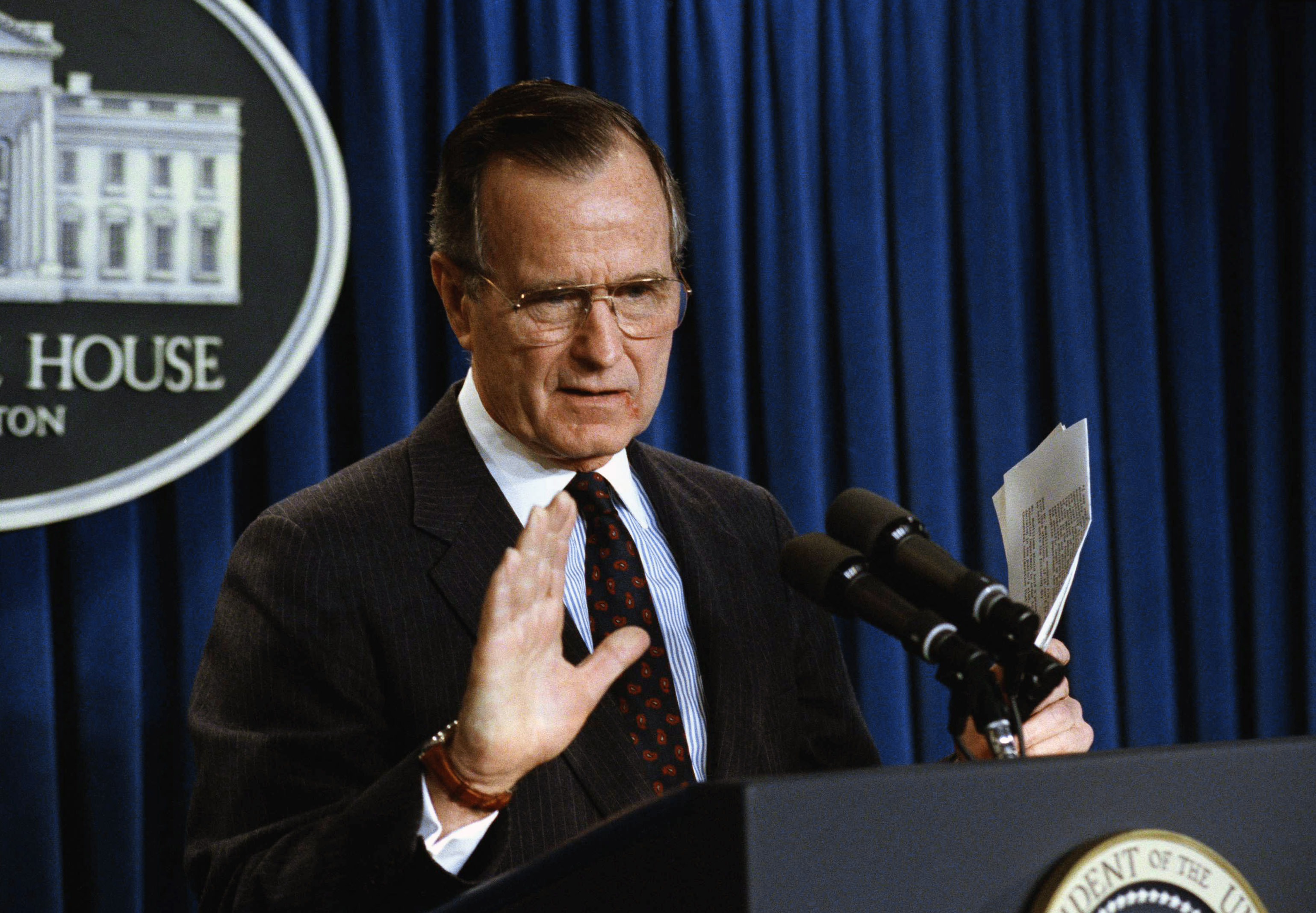
To tell you the truth, I was afraid some listeners might call during the talk show I hosted this morning when I interviewed Jon Meacham, who wrote the new biography on George Herbert Walker Bush. Some conversations are best left to the two people having it so that it doesn’t get sidetracked onto side issues, which is always a possibility when the subject is Bush and a particular moment in history.
The entire interview, and a very nicely written recap of the conversation, can be found on The Thread. There, by the way, you can also find the extended Dana Carvey appearance in the East Room which I’d mentioned near the end of the show. I believe that moment taught me as much about Bush the person at the time I saw it as any other part of his administration did. Incidentally, I believe that appearance occurred 23 years ago yesterday.
We throw terms around in the news business like “making history” far too often, especially when we apply them to stories that are happening today.
Meacham made an interesting observation near the end of our talk, something to the effect that you can’t begin to understand history until at least 25 years after it happened, especially history that you actually experienced.
Being a person of a certain age, that’s the way it is with me and George Herbert Walker Bush and while I think I understand him better than I did when he was in office, I still have a problem reconciling the ability of politicians to take advantage of a moment in order to obtain a measure of power via an election.
The tension in the early part of the interview today comes from a theme that runs through his tremendous book. That setting your ideals and values aside — or even turning your back on them — is just the way politics is. And, besides, once you’re in office, you can walk things back and apply your ideals and values.
To do otherwise seems simple enough, but that’s also naive.
Still, the problem I have with the system is that while the political calculus might make sense, applying it can still hurt people in the short term.
Politics isn’t for the weak, and it isn’t for people who aren’t occasionally willing to hurt people in the short term, to make a bigger difference in the long term.
I hope you get a chance to listen to the interview.
[edit to add] At the very end of our conversation, Meacham suggested people take a look at Bush’s eulogy for Ronald Reagan, which Nancy Reagan had requested even though she wasn’t a big fan of the Bushes during her husband’s term. Here it is:
From the archive: Former president jumps out of a perfectly good aircraft
